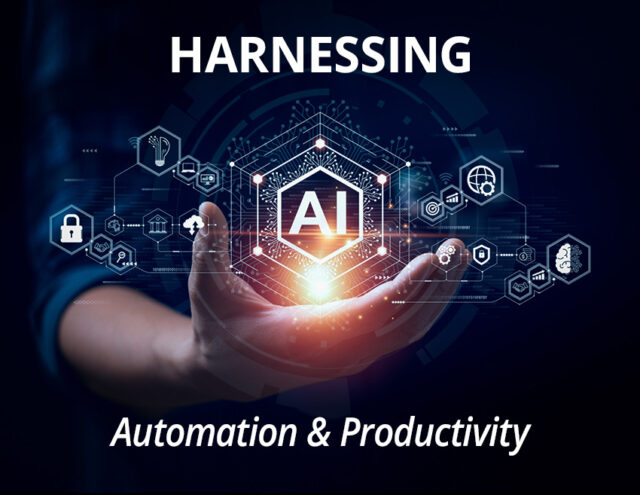In the rapidly evolving landscape of modern business, the integration of artificial intelligence (AI) is not just a trend—it’s a transformative force reshaping how companies operate. From streamlining operations to enhancing customer experience, AI offers a myriad of solutions that can drive efficiency and innovation.
But what exactly can it automate for your organization? As you delve into this exploration, consider how AI can handle repetitive tasks, optimize decision-making processes, and improve data management. The potential is immense, and understanding these capabilities can be the key to gaining a competitive edge in an increasingly automated world.
Let’s uncover three critical areas where AI can work wonders for your business, setting the stage for a smarter, more agile future.
Streamlining Customer Support

Streamlining customer support through Artificial Intelligence transforms the traditional model, bringing efficiency to the forefront. Automation tools like chatbots can engage customers 24/7, answering common queries with impressive speed and accuracy.
Imagine a scenario where a customer, late at night, has questions about an order—rather than waiting until morning, they receive instant responses, enhancing their satisfaction. Yet, its not just about quick replies; AI can analyze support tickets, identify patterns, and prioritize issues, allowing human agents to focus on complex problems that require a personal touch.
In this evolving landscape, companies not only reduce response times but also cultivate stronger relationships with their customers—an essential strategy for fostering loyalty and trust in an increasingly digital world.
Enhancing Data Analysis and Reporting

In today’s data-driven landscape, harnessing the power of AI can revolutionize how businesses analyze and report their metrics. Imagine automating the labor-intensive processes of data collection from multiple platforms, transforming raw numbers into insightful visuals in a heartbeat.
With AI tools, companies can sift through mountains of data, identifying patterns and anomalies that the human eye might easily miss. Reports that once took days to compile can now be generated in mere minutes, allowing teams to focus on strategic decision-making instead of grappling with spreadsheets.
Moreover, the capacity for real-time updates means that businesses can adapt on the fly, responding to market shifts with unparalleled agility. This synergy not only enhances accuracy but also enables organizations to leverage their data like never before, driving innovation and growth in a competitive environment.
Optimizing Supply Chain Management

In the fast-paced world of todays business landscape, optimizing supply chain management through AI can be a game changer for companies seeking efficiency and resilience. Imagine the intricate dance of suppliers, manufacturers, and distributors—now enhanced by AI algorithms that analyze massive data sets in real-time, streamlining processes and predicting potential disruptions before they escalate.
With machine learning models predicting demand fluctuations, companies can adjust inventory levels dynamically, reducing holding costs and minimizing waste. Moreover, AI-powered analytics can uncover hidden patterns in logistics, revealing the most efficient routes and methods for transporting goods.
This ensures a seamless flow of products from production to delivery, ultimately fostering increased customer satisfaction and trust. In a realm where every second counts and costs must be controlled, harnessing AI to refine supply chain strategies is not just advantageous; it’s essential.
Conclusion
In conclusion, the integration of AI in business operations represents a transformative opportunity for companies seeking to enhance efficiency and drive innovation. By automating routine tasks, businesses can free up valuable resources, allowing teams to focus on higher-level strategic initiatives.
The rise of autonomous AI agents further amplifies these benefits, as they can carry out complex processes with minimal human intervention, leading to improved decision-making and faster responses to market changes. As companies continue to embrace AI technologies, they will not only streamline workflows but also position themselves for sustained competitive advantage in an increasingly dynamic environment.
Embracing this evolution is not just a trend; it is a strategic necessity for businesses aiming to thrive in the digital age.




